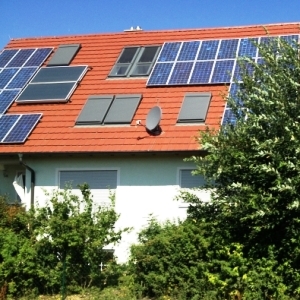As the use of solar panels increases, changes in net metering rules are more likely.
As more solar users sell their excess energy back to utility companies, the push for reform in Arizona's net metering policies by Tucson Electric Power and Arizona Public Service is just the first wave of likely changes on the horizon as the power industry struggles to balance the costs and benefits of solar energy.
Monica Martinez, president of Hispanics in Energy and CEO of Ruben Strategy Group LLC, told Arizona Business Daily that rates and fees are likely to change often going forward to accommodate increases in the amount of solar being sold back to the nation's power grid.
The main issue is that while solar users who benefit from net metering may be able to sell excess energy back to the utilities that maintain the grid, they still use the grid, which must be maintained and optimized for the new ways it is being utilized thanks to the abundance of solar energy. A majority of those grid-related costs are being paid by utility companies, with little contribution from solar producers.
“Depending on how net metering is implemented, the balance and economics would have to balance against those costs, subsidies and the inherent job creation in the state,” Martinez said. “This would also require an examination of other incentives included for the types of technologies that can be utilized for net metering.”
Nevada tripled the fixed-rate fees for rooftop solar users in December in an effort to ensure those benefiting from net metering were still paying to support the power grid.
“Since the price of the distributed generation has gone down significantly since the installation of these programs that is why these incentives are being reviewed,” Martinez said. “Across the country, we are constantly talking about investment to infrastructure, and the grid is very much a part of that. Too often net metering proposals allow customers to not pay certain costs attributed to low-income programs or other grid costs, and that isn't beneficial to ensuring there is investment for the future.”
While most states aren’t considering actions as drastic as Nevada, Martinez said that any change will likely be seen as extreme to people who are invested in the current paradigm of metering.
“I don't think anyone in any industry or situation likes changes,” Martinez said. “I think the problem that exists is that decisions are often made without the consideration that the current rate or tariff is likely to change. So, if someone is purchasing a solar panel today, they should recognize that the regulatory fees or payments are likely to change - whether they are positive or negative.”

